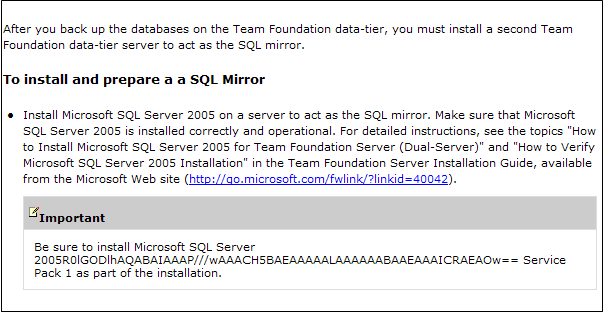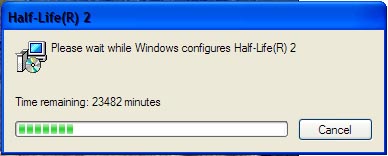What Could Possibly Be Worse Than Failure?
by in Alex's Soapbox on 2007-02-28Earlier this week, I changed the name of the site to Worse Than Failure. A lot of readers weren’t too happy with the new name and many of you wondered why, of all names, did I choose Worse Than Failure. After all, what could possibly be worse than failure? In lieu of telling a specific story of failure today, I’d like to share my insights as to why there are – and will continue to be – so many spectacular WTFs (as in, for old time’s sake, What-The-F*s) in our industry, and why so many of them are, in fact, worse than failure.
In the almost-three years that I’ve been writing this blog, I have seen some of the most obscene perversions in information technology ever created. Heck, we all have. While quite a number of these disasters can be blamed on amateurish incompetence, so many defy all explanation. It’s as if highly-capable, incredibly-intelligent, and good-natured software engineers got together and said, "Let’s build the worst software ever created!"

 Jan 07
Jan 07
 In the early 80s, the server room at MegaCorp (as we'll call them) was cutting edge. Humming along to A Flock of Seagulls and occasionally taking breaks to solve Rubik's cubes, the engineers installed servers, networking equipment, and a main air conditioning unit. Their infrastructure was among the best in the business.
In the early 80s, the server room at MegaCorp (as we'll call them) was cutting edge. Humming along to A Flock of Seagulls and occasionally taking breaks to solve Rubik's cubes, the engineers installed servers, networking equipment, and a main air conditioning unit. Their infrastructure was among the best in the business.

 One thing I miss about working at a large organization is watching the blame game get played out. It always amazed me how much more effort went into explaining why a problem wasn’t someone’s fault (and most certainly not his responsibility to solve) than actually solving the problem itself. The larger the issue got and the more experienced players that got involved, the chance of actually solving the problem became nil.
One thing I miss about working at a large organization is watching the blame game get played out. It always amazed me how much more effort went into explaining why a problem wasn’t someone’s fault (and most certainly not his responsibility to solve) than actually solving the problem itself. The larger the issue got and the more experienced players that got involved, the chance of actually solving the problem became nil.


 Ask any developer at a bank about their deployment process and you'll hear about User Acceptance Testing (UAT). Many of us have felt the sting of code changes working in one or two environments, only to fail when it finally hits QA. Maybe it's just me.
Ask any developer at a bank about their deployment process and you'll hear about User Acceptance Testing (UAT). Many of us have felt the sting of code changes working in one or two environments, only to fail when it finally hits QA. Maybe it's just me. Doghouse Insurance (as we'll call them) was not a pleasant place to work. Despite being a very successful player in their industry, the atmosphere inside Doghouse was filled with a constant, frenzied panic. If Joe Developer didn't delay his upcoming vacation and put in those weekend hours, he might risk the timely delivery of his team's module, which might risk delaying the entire project, which might risk the company's earnings potential, which might risk the collapse of the global economy. And that's just for the Employee Password Change Webpage project; I can't even begin to fathom the overarching devastation that would ensue from a delayed critical project.
Doghouse Insurance (as we'll call them) was not a pleasant place to work. Despite being a very successful player in their industry, the atmosphere inside Doghouse was filled with a constant, frenzied panic. If Joe Developer didn't delay his upcoming vacation and put in those weekend hours, he might risk the timely delivery of his team's module, which might risk delaying the entire project, which might risk the company's earnings potential, which might risk the collapse of the global economy. And that's just for the Employee Password Change Webpage project; I can't even begin to fathom the overarching devastation that would ensue from a delayed critical project.  Most universities have it rough. If they’re not ivy league, they have a lot of work to do to impress visitors. Sure, Baron von Ivyleague, clad in a Mr. Peanut-esque monocle and tophat, can give students a ride in his flying yacht, but a tenured professor for Uncle Marty’s Community College has to make do with substantially fewer resources.
Most universities have it rough. If they’re not ivy league, they have a lot of work to do to impress visitors. Sure, Baron von Ivyleague, clad in a Mr. Peanut-esque monocle and tophat, can give students a ride in his flying yacht, but a tenured professor for Uncle Marty’s Community College has to make do with substantially fewer resources.